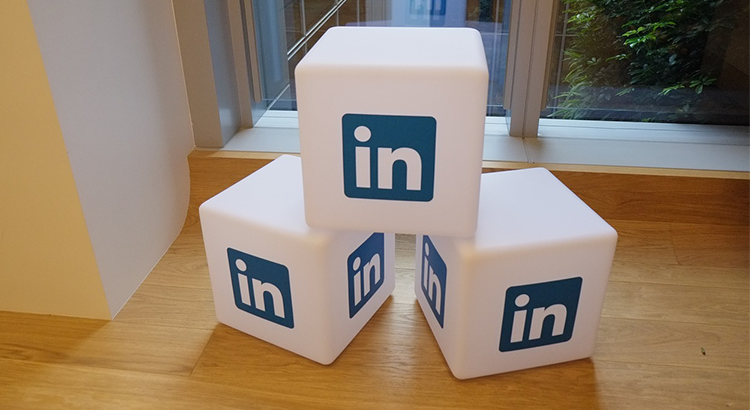Do you have LinkedIn Groups? Or, are you in at least one LinkedIn Group? Well, if you are, we are proud of you. You are not only on LinkedIn, you are actually using it for whatever professional reason.
But hold up, what are LinkedIn Groups for really? Perhaps you’ve joined a few of them some time back, but you are not sure how to use them to your advantage. Or, perhaps you are just too anxious or intimidated to engage with other people in the Group?
LinkedIn Groups can be one of your most valuable resources for job search, career networking, and professional/personal branding. That’s if use it to your full advantage.
Whether you are hunting for a new job, seeking to connect with new people, or establishing a reputation as a thought leader in your industry, LinkedIn Groups can be a great asset for you.
But which groups should you join?
This is a no-brainer. Groups that will likely be most valuable to you are those related to your industry and your current location in the world. The more specific a Group is to your needs and your conditions, the better off you’ll be in that Group. For example, between the Groups “Copywriters” (international) and “Philippine Copywriters’ Network” (local), I’ll most likely get the most value from the latter.
Join a few and pay attention to discussions in the Groups. Once you are in, there are a few things you can do in order to take full advantage of you being there.
1. Participate in the discussions.
LinkedIn Groups are specifically created for discussions. While you can opt to lurk in there and silently read interesting insights and controversial exchanges of views and updates, it is beneficial for your professional development if you hop right in and join the conversation.
Look for posts or threads that interest you the most. Look for threads where you can add value or insight. However, don’t sell, be social. Joining a group is like being invited to a party: It’s best to get to know people first. Demonstrate sincerity all the time.
Speaking of sincerity, you must avoid dominating the conversation. Hear their opinions first and take time to think about them before you respond. This reaction will let people know you’re open to hearing their opinions.
And lastly, don’t brag (in all of its morphologies, i.e. humbly bragging, or underbragging). Remember that you are not the only expert in the Group (if you are one to begin with). Keep an open mind even when you disagree. Otherwise, it won’t be professional. And there’s no place for unprofessionalism in a professional networking medium like LinkedIn.
Benefits you can get:
- Meet valuable individuals in your industry.
- Position yourself as a passionate and knowledgeable professional in your field.
- Helps build your reputation and thought leadership.
2. Post a question. Share an update.
If you can participate in a discussion that interests you, well, this one’s a step bolder. By posting a question or sharing an interesting update, you are actually starting a discussion thread. Just keep in mind that before posting anything, review the Group’s internal rules and regulations. Consider also the subculture or spirit of any given Group, i.e. is the Group open to debating controversial issues, or is it more of a feel-good bunch?
Also, ask questions that can benefit everyone. Understand the Group’s goals and purpose. Do your homework and observe. Know the pains of the Group’s other members and figure out what they are trying to achieve.
Benefits you can get:
- Another way to help you establish your thought leadership and your personal brand.
- Position yourself as a knowledgeable and passionate professional in your industry or field.
3. Check for career opportunities.
There are plenty of LinkedIn Groups have dedicated threads or sections for job postings. These job openings are posted in Groups in the belief that they would specifically relevant to that Group’s membership. It makes perfect sense for recruiters to post in niche Groups because there is greater chances of finding narrowly qualified talent.
And, if you’ve successfully established your thought leadership and have successfully communicated your personal brand in the Group, you might even get the first notice of opening from recruiters and hiring managers who also belong to your Group.
Benefits you can get:
- Find the perfect job that are not widely advertised elsewhere.
- You might even get the first notice of opening from hiring managers who have known you (because you’ve been adding value to the Group).
4. Connect with fellow group members.
Found someone in the Group who may be beneficial to talk to or know for a long term? Banter with them through open group discussions and establish the necessary conditions conducive to a more direct contact afterwards. Having them in the same Group gives you the opportunity to email them through LinkedIn directly (they are called InMails).
When you email someone who belong to the same Group you’re in, it’s nice to start the pitch by stating that similarity. They might have remembered you, who knows.
Here’s a sample:
“You and I are both members of the Philippines Copywriter’s Network. I happened to notice you head up advertising at X Company, and I thought I’d introduce myself.”
Benefits you can get:
- Develop long-term, beneficial friendship with interesting, helpful professionals.
- Venture on greater professional opportunities only friends can offer.
5. Start your own group.
Starting your own Group is an exceptional way establish your thought leadership. However, remember that when you start to dive into this one, you have to be fully committed in running your Group. You have be an exceptional moderator and curator of knowledge. Otherwise, they’ll patronize other well-established Groups.
Benefit you can get:
- You will not just be a thought leader. You will actually be a leader.
- Increased chance of meeting incredibly interesting and helpful people.
Take Home Message
LinkedIn Groups are extremely valuable once used right. Make use of it to your full advantage. Remember that once you come in a room full of people you’ve seen for the first time in your life, you cannot expect to get noticed immediately. You cannot expect for someone to approach you (unless they have something to sell to you) and talk with you about things that matter to you. Make the effort to get noticed. Interact with people. And get across the message you want known to them.

